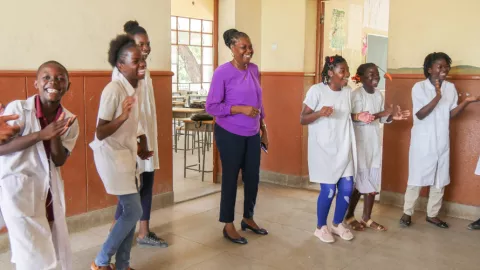What Works to Improve Outcomes for Children?
A rapid evidence assessment of cash plus programmes in low- and middle-income countries, informed by social and behaviour change (SBC) strategies

Highlights
Cash transfers are a type of social protection that help to reduce the effects of poverty. They are typically delivered in the form of cash or vouchers that beneficiaries can use for various expenses in the same way as earned income.
While cash-transfer programmes have shown positive effects on important first-order outcomes, such as food security, household consumption and education, there are limits to the effectiveness of cash transfers alone in addressing all development needs. Many interventions have had inconsistent or no impact on other important well-being outcomes, such as child nutrition, early marriage, health-seeking behaviour, and sexual and reproductive health.
In order to improve the effectiveness of social protection in addressing these multidimensional needs, cash transfers are modified to cash-plus interventions by combining them with additional elements, such as in-kind resources, behaviour change interventions and links to other social services. SBC components of cash-plus interventions aim to address the drivers of behaviours that affect children’s well-being.
The aims of this rapid evidence assessment are:
- Assess the effectiveness of cash transfers combined with social and behaviour change (SBC) components to improve outcomes for children
- Identify which types of SBC are effective in improving outcomes
- Identify the contextual factors that are necessary to successfully deliver cash-plus interventions with SBC components





